Construction lien and holdback rules
A construction lien is a charge or security on a property that can be registered on title to the property by anyone who has supplied services or materials to improve the property.
A holdback is a requirement that all owners, contractors and subcontractors withhold 10% of the cost of the services or materials they supply on a project. This helps to make sure that there is enough money to satisfy any lien claims that may come up.
Amendments to the construction lien and holdback rules and related regulatory changes came into force on July 1, 2018. You can find a chart describing some of the key changes here.
Some of the key changes include:
- Language in the legislation has been clarified to better reflect large-scale, public projects that have multiple owners.
- Contractors and subcontractors have 60 days to register a lien and 90 days to start a court action.
- Contractors and subcontractors must follow specific bookkeeping rules to protect subcontractors in the event of bankruptcy.
- Public sector owners, such as the Crown, municipalities and broader public sector organizations, are required to have a surety bond on public contracts above a prescribed amount, and alternative financing and procurement arrangements (AFPs) are subject to a minimum coverage limit. to protect subcontractors and workers if the general contractor files for bankruptcy.
- Condominium unit owners can remove liens from their unit that are related to improvements to the common elements, such as corridors, lobbies, the garage and the roof.
- Project owners and other payers are required to pay contractors and subcontractors holdbacks once the timeline to file liens has passed. This helps contractors and subcontractors plan, accept contracts for new work and have more certainty about when the holdback will be paid.
Prompt payment
- Construction laws now include a prompt payment framework to make sure that contractors, subcontractors and workers are paid on time.
- Owners and general contractors must agree to a deadline to submit an invoice. If they do not agree, the contractor will be required to submit invoices to the owner on a monthly basis.
- Owners are required to pay general contractors within 28 days after the owner receives the invoice from the contractor .
- General contractors must pay subcontractors seven days after receiving payment from the owner.
- Subcontractors must pay other subcontractors within seven days of receiving payment from whomever hired them for the project.
- Contractors and subcontractors have a right to charge mandatory interest on late payments beginning when the amount is due. Interest would be the prejudgment rate determined under the Courts of Justice Act or the rate set out in the contract or subcontract, whichever is higher.
Payment disputes
In cases where there is a dispute about the amount owed or the quality of the work:
- owners are permitted to deliver a notice of non-payment to the contractor within 14 days of receiving the invoice from the project owner
- contractors are permitted to deliver a notice of non-payment within seven days to the subcontractor
- subcontractors are permitted to deliver a notice of non-payment within seven days to other subcontractors they hire
Resolving a dispute
Effective October 1, 2019 (subject to applicable transition rules), a new adjudication process gives people and businesses an alternative to going to court to resolve payment disputes.
The key features of the adjudication process are as follows:
- Adjudicators are experts with extensive experience in the construction industry and experience or training in dispute resolution
- The Authorized Nominating Authority (Authority), oversees the new interim adjudication regime by training and qualifying adjudicators, maintaining a registry of qualified adjudicators, and performing other duties and services outlined in the legislation and supporting regulations
- Disputes must be heard by an adjudicator from the registry of adjudicators, who may be selected by the parties or by the Authority
- The parties and the adjudicator may agree to the fees of the adjudicator. If they do not agree, the fees will be determined by the Authority in accordance with a fee schedule published on the Authority’s website.
- The adjudicator will issue a determination in approximately six weeks, which will be binding on the parties, on an interim basis, until the dispute has finally been resolved in court or arbitration, or by agreement of the parties. If the parties are satisfied with the determination, they may agree to treat it as final.
If, after adjudication, the individual or business owing money refuses to comply with the determination, the party that is owed the money has the right to:
- stop work under the contract
- charge mandatory interest on late payments
- enforce the adjudicator’s determination by filing a certified copy in the Superior Court of Justice.
The adjudicator’s determination cannot be appealed, but it can be challenged on certain grounds, such as adjudicator bias.
New regulations
To support the changes, the government made four regulations to:
- prescribe various forms
- set out the court procedure for construction lien actions
- establish monetary thresholds for surety bonding and holdback and the requirements for publication of notices
- outline adjudication processes and the requirements for the Authority.
The regulations are published on e-Laws, and each form is available online.
When the changes came into effect
- The amendments to the construction lien and holdback rules and related regulatory changes came into force on July 1, 2018
- The prompt payment and adjudication processes, the amendments related to liens against municipalities, and related regulations came into force on October 1, 2019.
The transition rules are set out in section 87.3 of the amended legislation. Please refer to the legislation and consult a lawyer to determine how the rules apply to your situation.
Minstry of the Attorney General - www.attorneygeneral.jus.gov.on.ca

